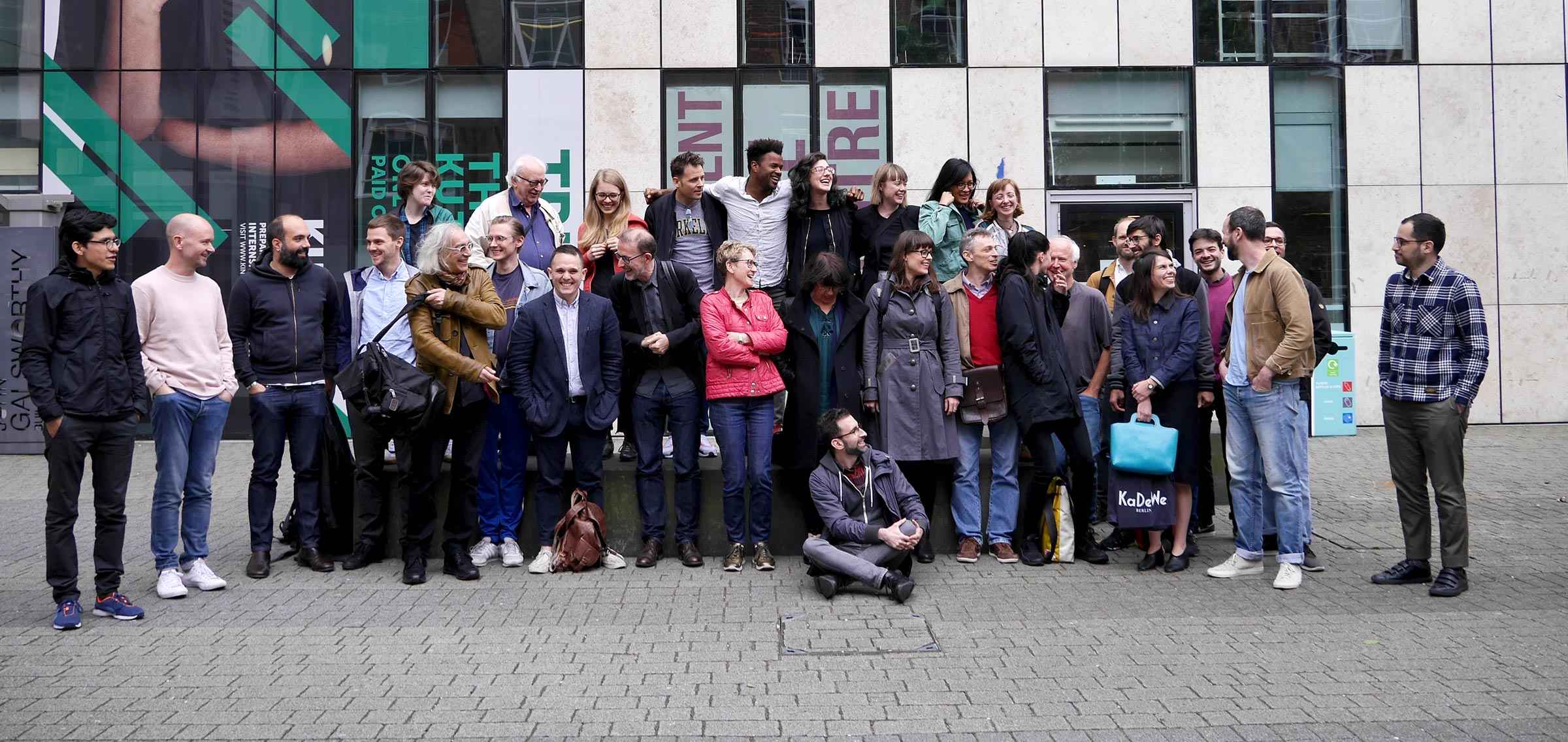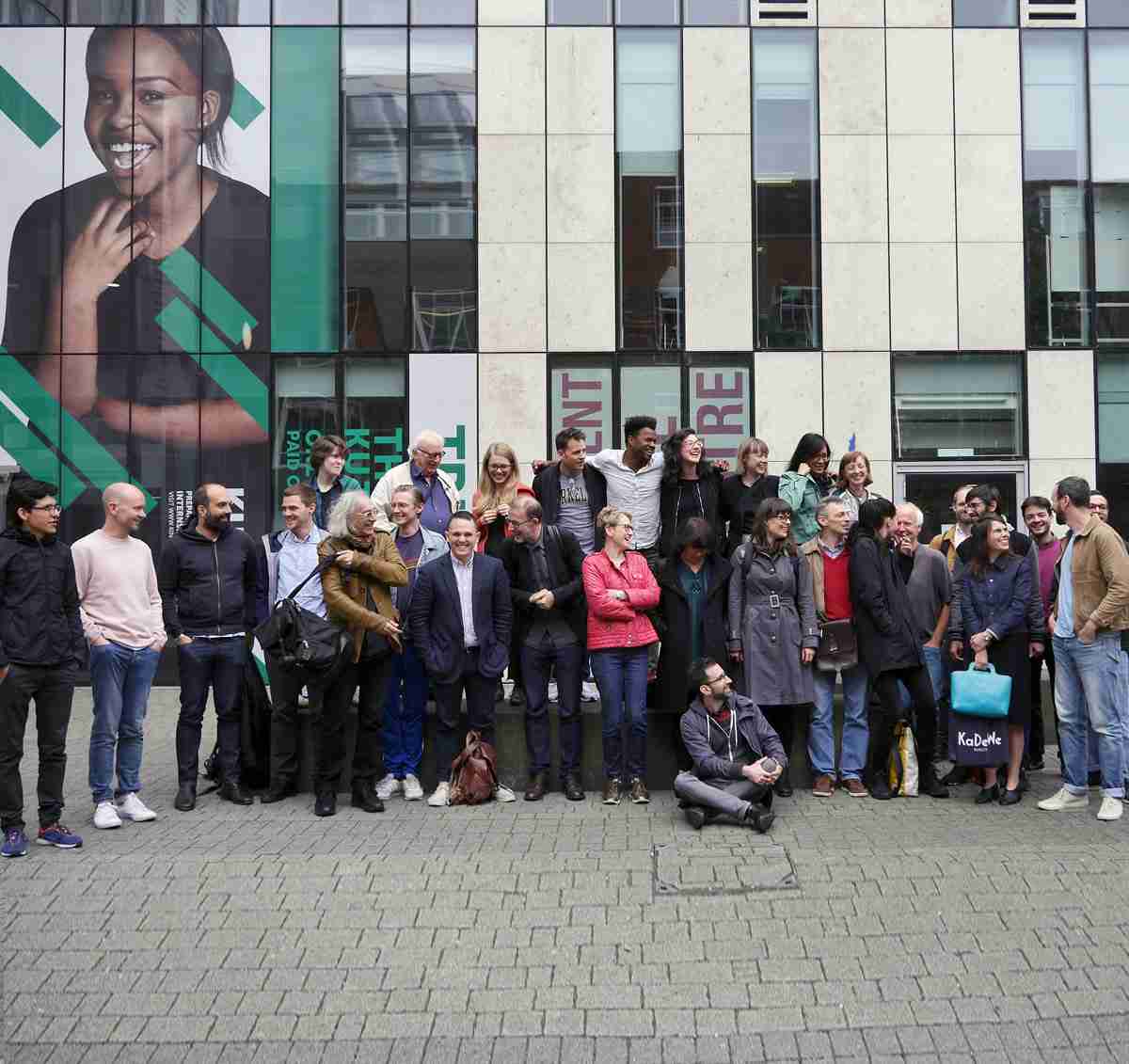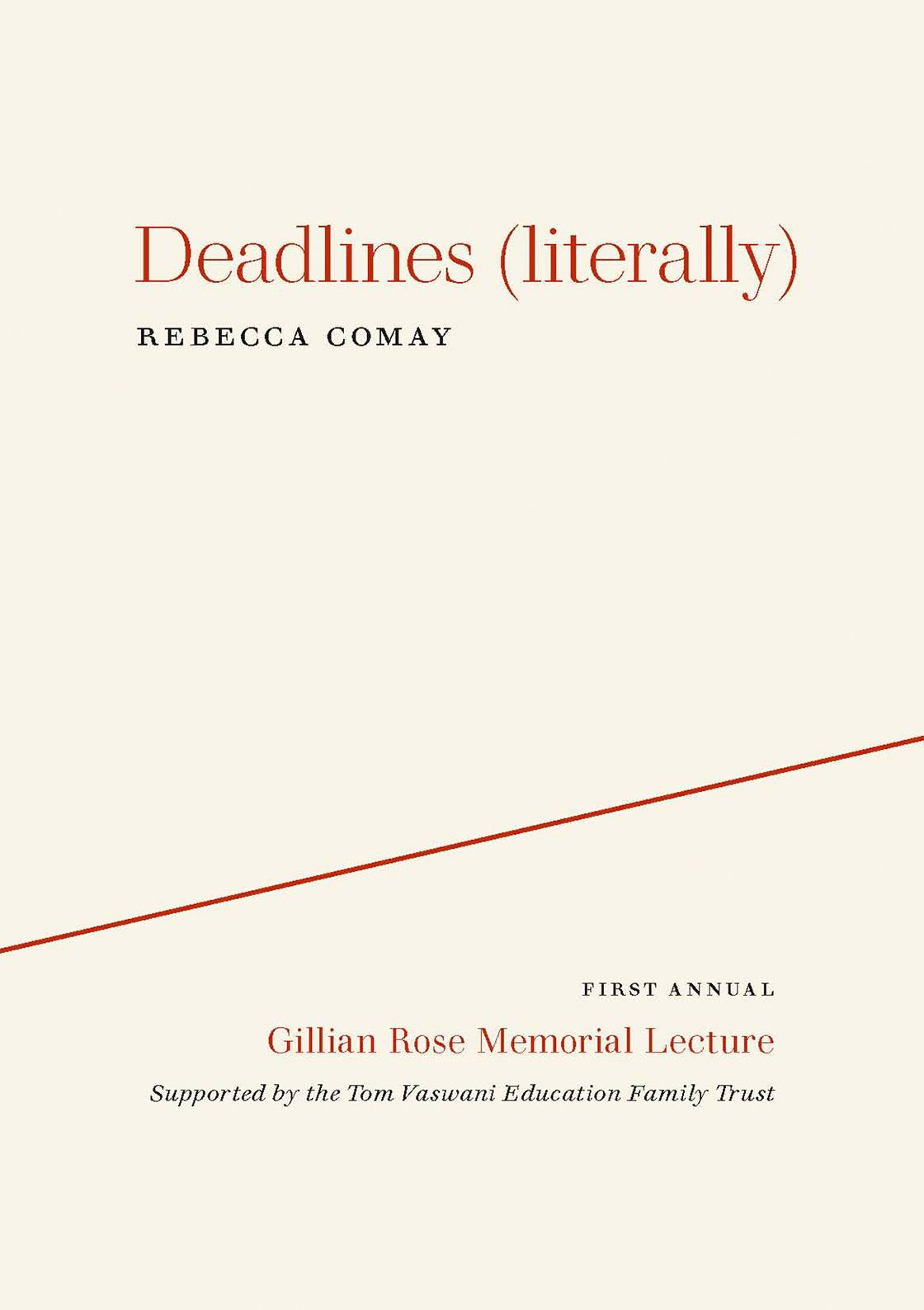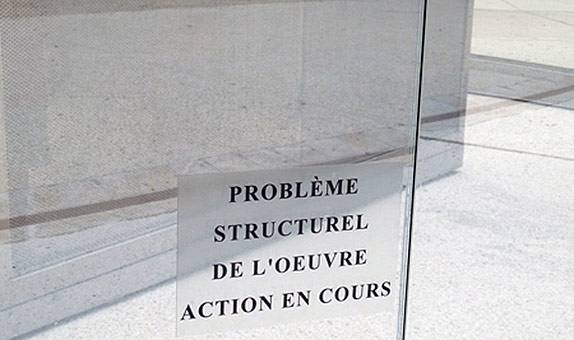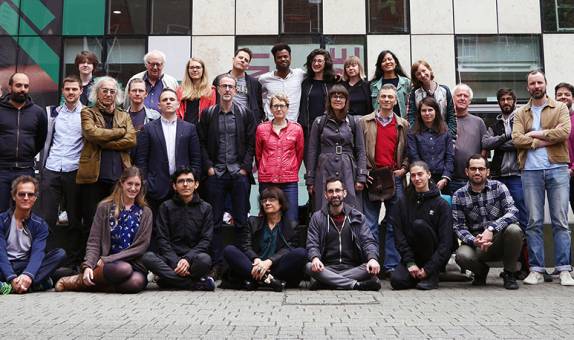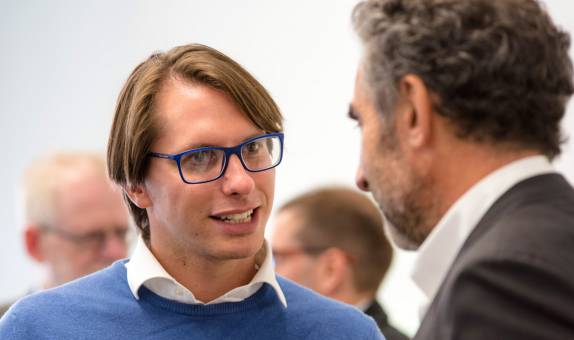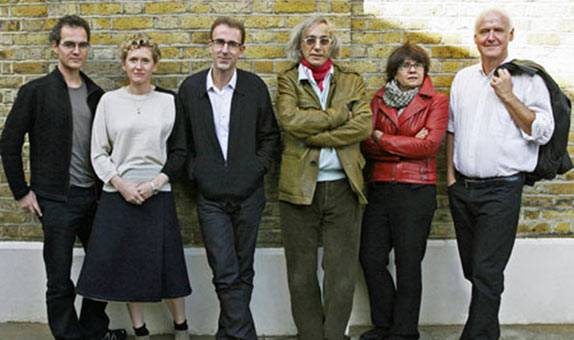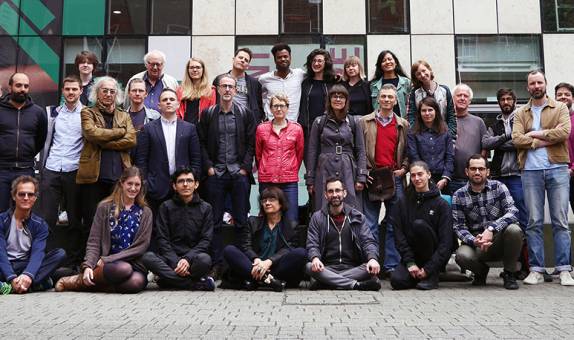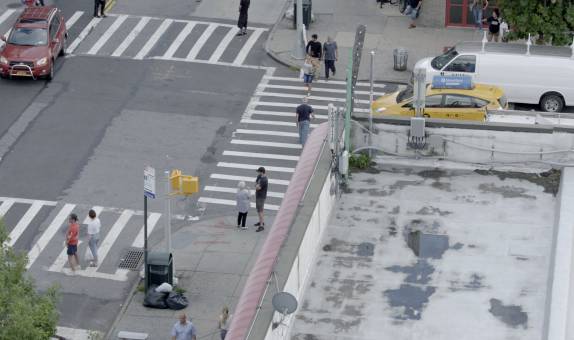CRMEP pamphlets
Series 1: The Gillian Rose Memorial Lectures
Generously supported by the Tom Vaswani Family Education Trust.
Lecture 4 (2023, published 2024)
Samir Gandesha, Identity Politics: Dialectics of Liberation or Paradox of Empowerment?
Over the past two decades, identity politics has exercised a startling influence in progressive circles in the Anglosphere, within both the university and the broader public realm. Moreover it has been taken up into the agendas of putatively liberal and nominally social democratic parties. However, the idea of identity politics is still widely misconstrued. This lecture reflects on the origins and conceptual and political meanings of the idea. It poses the question, ‘Is identity politics best viewed as embodying a genuine dialectic of emancipation or as what, in her 1996 collection Mourning Becomes the Law, Gillian Rose called an aporetic "paradox of empowerment"?' Put differently, does identity politics aim at fundamental social transformation or does it more simply represent a shift in what we might call the 'organic composition' of elites within capitalist societies?
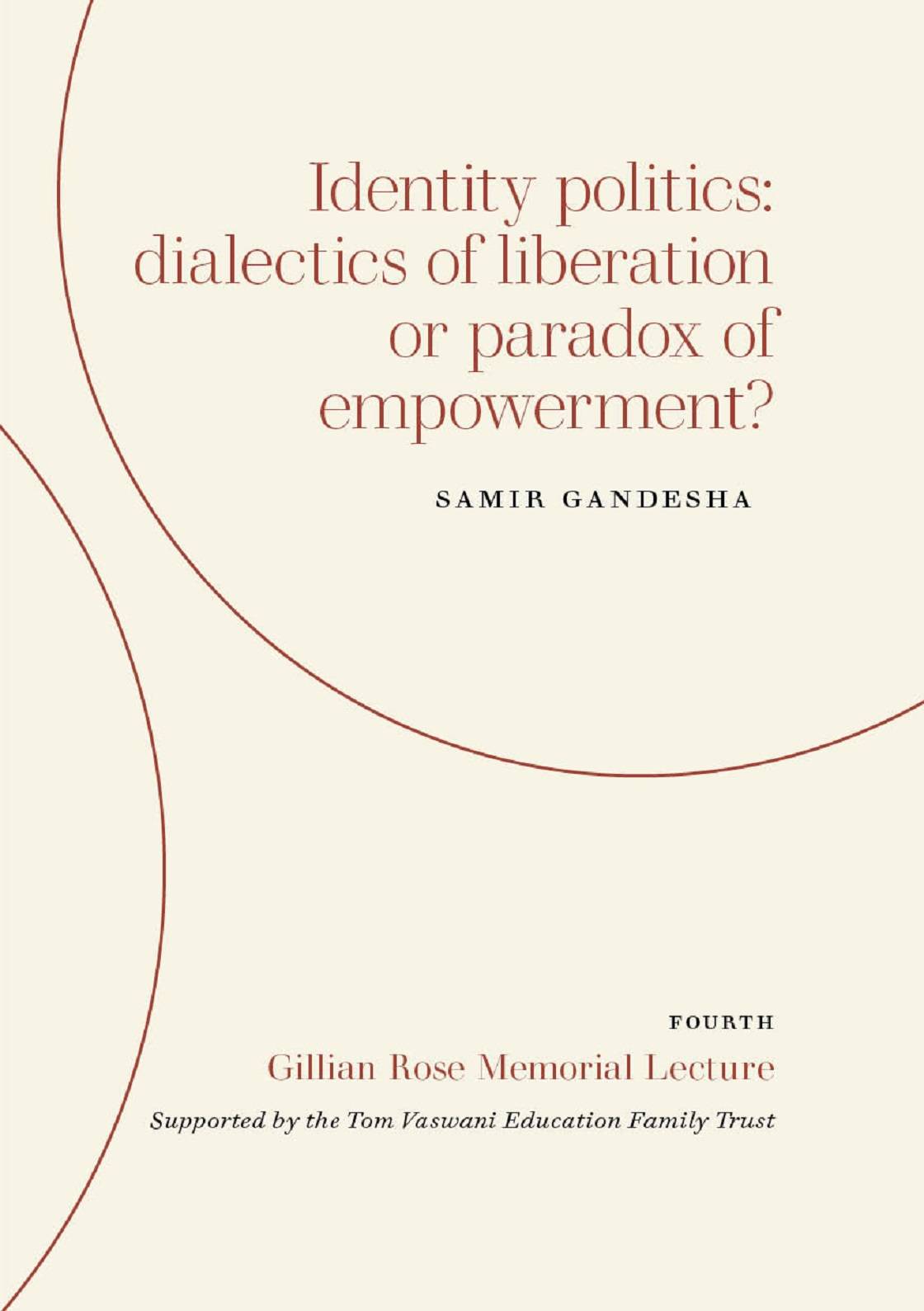
Lecture 3 (2022, published 2023)
Rowan Williams, Solidarity: Necessary Fiction or Metaphysical Given?
In an atomised and individualistic culture we reach very readily for the ideal of 'solidarity' as a corrective. But the term is not straightforward: it can be used to suggest a ready-made harmony in social affairs waiting to be uncovered by the moralist or activist, in a way that short-circuits the necessity of naming and thinking through conflicts, understanding power and complicity, and learning the tools for critical scrutiny of one's own agenda as well as those of others. These themes are close to the heart of Gillian Rose's legacy. This lecture examines how her work can help us approach solidarity with a sharper ethical and philosophical eye, allowing us to see it as bound up with sharing in the project of language itself, as a practice that takes time, working towards a vision of shared good that involves both critical and reciprocally creative engagement.
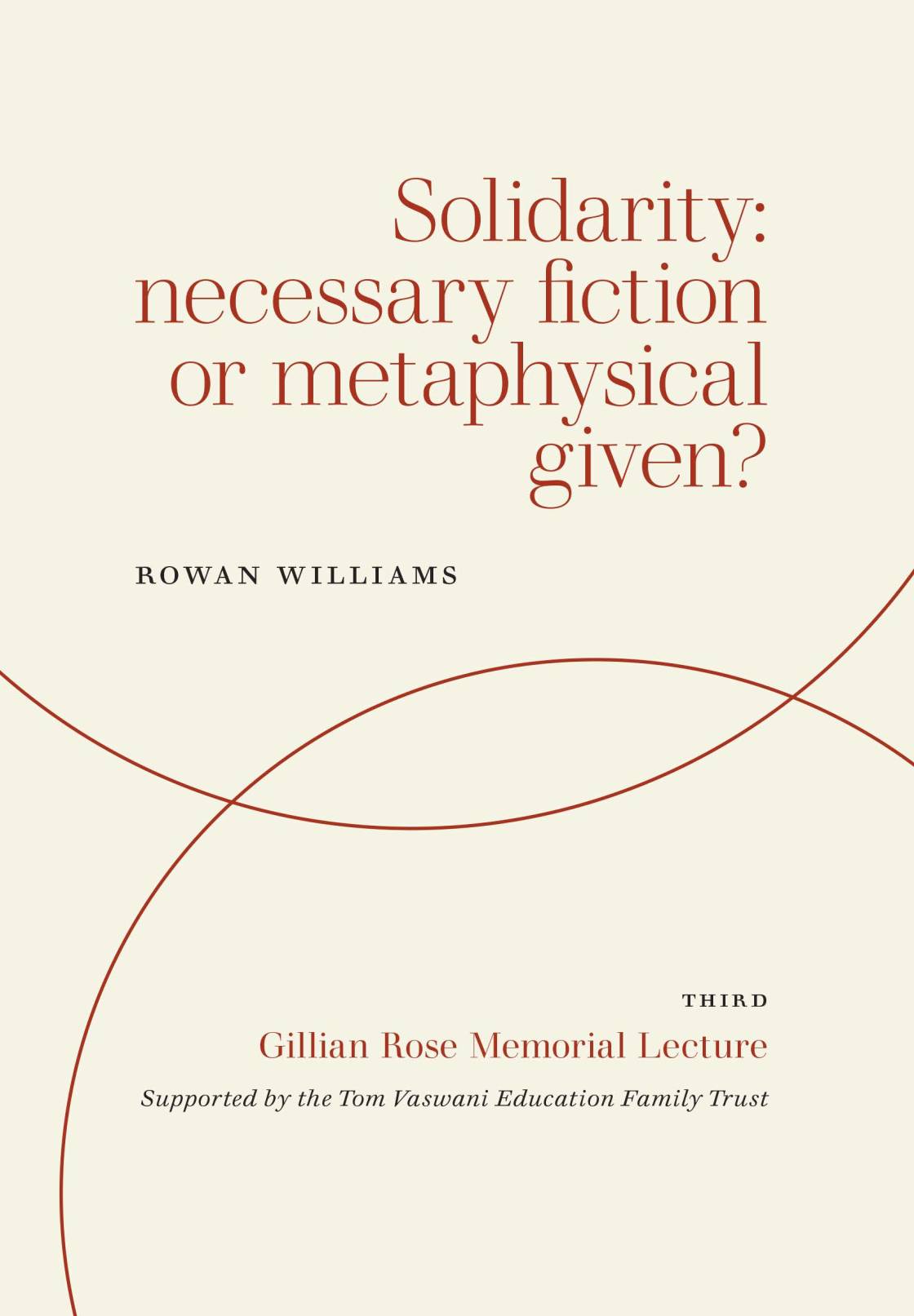
Lecture 2 (2021; published 2022)
Donatella di Cesare, It is Time for Philosophy to Return to the City
In today's crisis-ridden world of globalised capitalism it can seem harder than ever to find a way outside. Philosophy runs the risk of becoming the handmaiden of science and of a hollowed-out democracy. It is time for philosophy instead to return to the city, to the pólis from which it was banished after the death of Socrates, and to rediscover its ambiguous political potential. Critique and dissent are no longer enough. Mindful of a defeated exile and inner emigration, philosophers need new alliances and new visions. It is time, Donatella Di Cesare argues, to turn towards a radical existentialism and a new anarchism.
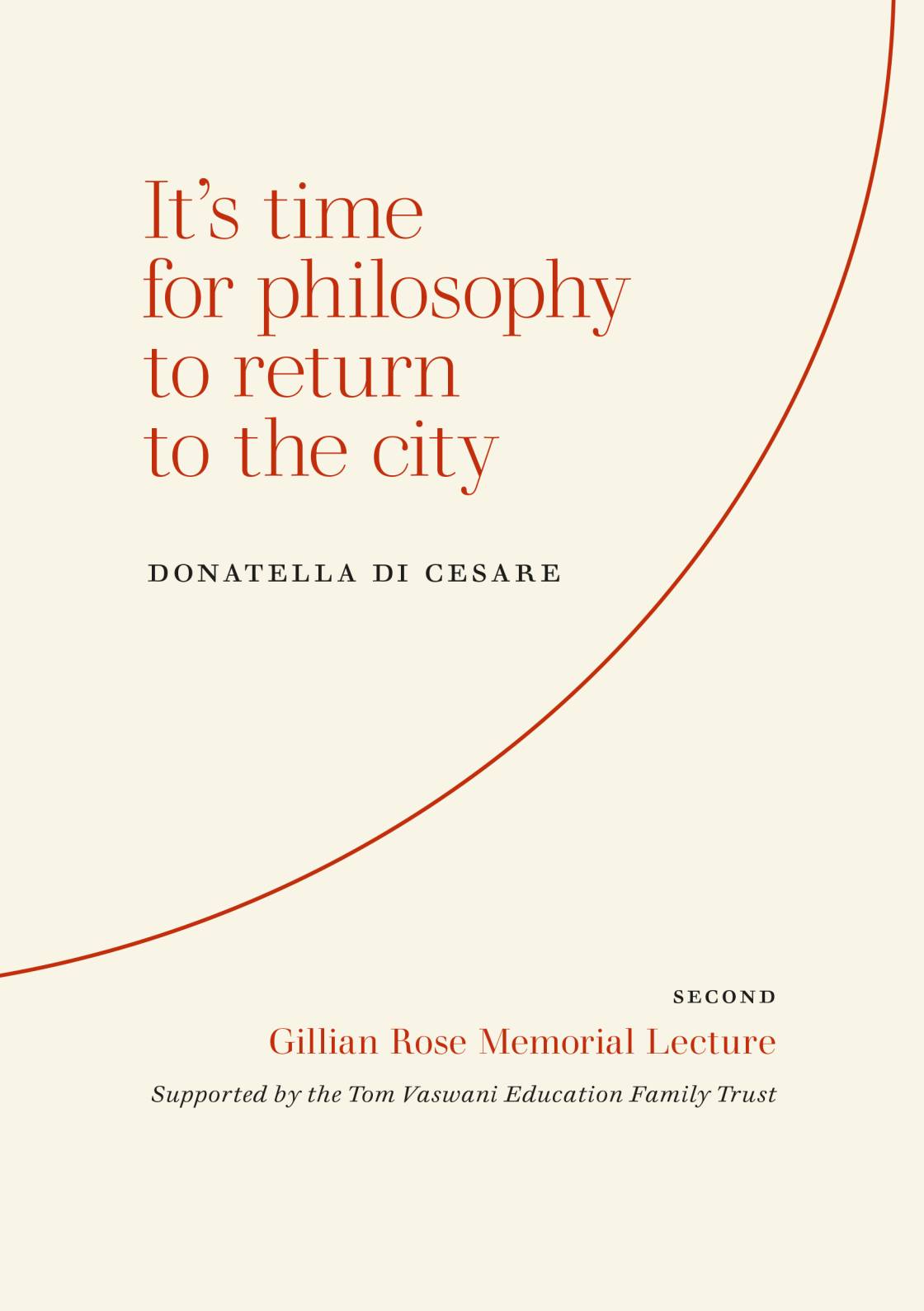
Lecture 1 (2019; published 2020)
Rebecca Comay, Deadlines (literally)
Is there more than a superficial family resemblance between the emergencies we suffer on a daily and on an epochal basis - due dates, expiry dates, statutes of limitation, biological clocks, revolutionary crisis points, environmental tipping points, pandemic turning points, messianic end times? The deadline invokes the implacable indifference of measured time, but the manner in which it imposes itself is anything but uniform. Like all emergency measures, deadlines are coercive rituals that distribute privilege unevenly - limits are announced, extensions are granted, penalties are imposed, time runs out faster for the disenfranchised. The deadline (like death itself) is a ‘real abstraction': it universalizes itself in a palpably discordant fashion.
